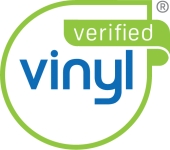Voluntary commitment by industry: how promising can it be?
The concept of voluntary agreements to apply sustainability to industry isn't new but agreements endorsed by authorities remain rare. What role can voluntary approaches play in advancing towards a more sustainable industry? VinylPlus, the voluntary sustainable development programme of the European PVC industry, just released its latest report and the results of the programme are crystal clear: with nearly 600,000 tonnes of PVC recycled in 2016 alone the voluntary programme is a true success.
Often, policy makers fear business will continue as usual if there is no enforcement or penalties. However, self-regulation builds bridges between industry and government by motivating and driving business towards setting and reaching concrete sustainability targets. European authorities start to realise that: the Council of the EU[1] encourages cooperation between authorities and the private sector to promote innovation and industrial symbiosis. The European Commission is also looking into the potential of voluntary agreements as a way to ensure an efficient transition to the Circular Economy.
The Voluntary Commitment from the European PVC industry is proof that self-regulation can be extremely effective. VinylPlus’ new audited Progress Report[2] shows that the voluntary programme is achieving major results with the recycling of nearly 600,000 tonnes of PVC in 2016. Since its start in 2000, over 3.6 million tonnes of PVC have been recycled, reducing the amount of waste going to landfill, saving resources and creating jobs.
“VinylPlus is one of the industry voluntary commitments in Europe that truly works and delivers success.The programme is progressing towards its target to recycle 800,000 tonnes per year by 2020. Our voluntary commitment to sustainability and the circular economy pushes us to reach such ambitious recycling targets” says VinylPlus General Manager, Brigitte Dero.
Voluntary does not mean “business as usual”. Quite the opposite: it is about taking action with clear purpose in a way which allows for trial, error, achievements and success. VinylPlus’ keys to success for an effective voluntary commitment? Measurable targets and deadlines, concrete results, independent verification, involvement of the entire value chain and transparent communication. These are the vital elements VinylPlus was built on and continues its positive expansion, and the basis on which VinylPlus is registered as a SMART partnership on the UN Partnerships for SDGs platform[3].
“I’m happy to see that in its Progress Report 2017 VinylPlus is reporting its contribution to the UN Sustainable Development Goals”, said Christophe Yvetot, United Nations Industrial Development Organization (UNIDO) Representative to the European Union. “I’d like to congratulate VinylPlus; we know how difficult it is to bring a whole value chain together to achieve more sustainability. VinylPlus shows that industry can change, industry can contribute. VinylPlus is a good role model and we are ready to work even more closely with them.”
ABOUT VINYLPLUS
VinylPlus is creating a long-term sustainability framework for the PVC value chain in the EU-28 plus Norway and Switzerland. With traceability and certification schemes, we stimulate demand for recyclates as part of a circular economy and prevent the loss of valuable PVC. Learn more in our 2017 Progress Report.
CONTACT
Zdenek Hruska, Public Affairs Director: +32 (0) 2 676 17 40 | zdenek.hruska@plasticseurope.org
Sylvie Famelart, Communications Manager: +32 (0) 2 676 72 45 | sylvie.famelart@plasticseurope.org
www.vinylplus.eu | @VinylPlus_EU
[1] http://www.consilium.europa.eu/en/press/press-releases/2016/06/20-envi-conclusions-circular-economy/
[2]The 2017 Progress Report has been independently verified by SGS and tonnages of PVC recycled and expenditures have been audited and certified by KPMG; http://www.vinylplus.eu/documents/44/59/New-Progress-Report-2017

